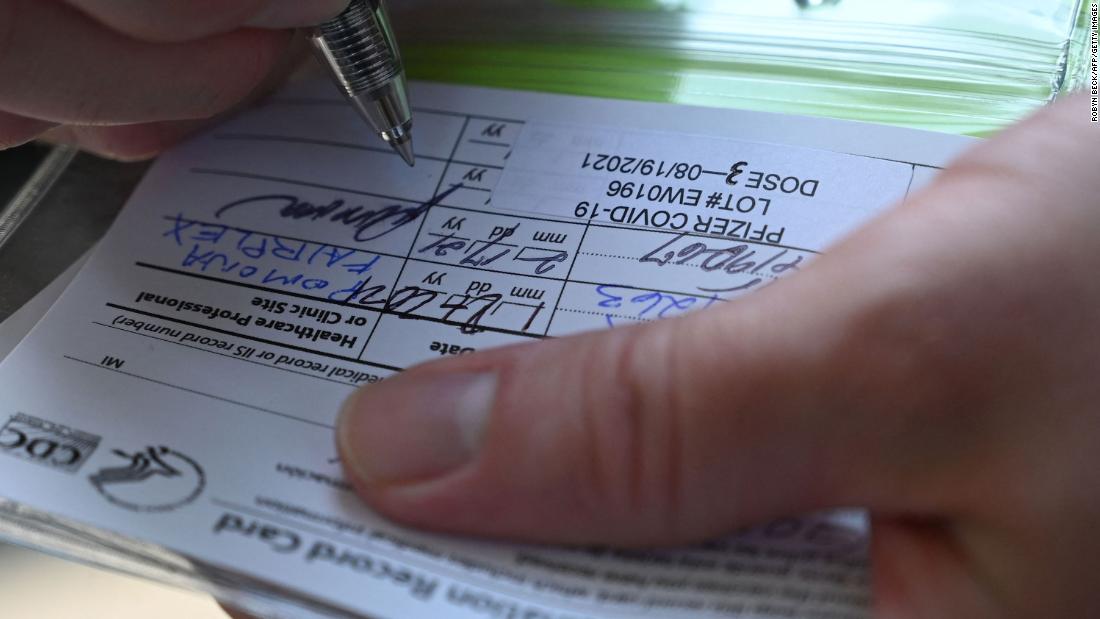Analysis: The vast majority of Republicans don’t want a booster
The initial polling indicates that convincing a good portion of this 84% to get a booster could prove difficult. This divide may end up being even more partisan than the already wide gap we’re used to on Covid-19 vaccines.
Just 40% of all adults said they definitely would or already had received a booster. An additional 12% indicated that they would probably get it. Combined and unrounded, 53% of all adults said they would likely or had already received a booster shot.
Put another way, 79% of fully vaccinated (i.e. eligible for the booster) Americans said they would get the booster in the poll. A look at other polling indicates that about 75% to 80% of vaccinated adults said they would get the booster. In other words, this poll isn’t an outlier.
Still, 53% of all adults getting the booster represents a lower base than the adults who said they would definitely or probably would get the vaccine when it was initially offered.
This 71% is identical to the 71% of all adults who the US Centers for Disease Control and Prevention now says are fully vaccinated (i.e. received two doses of Moderna or Pfizer or one dose of Johnson & Johnson).
Both Democrats and Republicans seem less likely to get a booster than get an initial vaccination, but Republicans in particular have been the most down on a booster.
In the new Kaiser poll, just 36% of Republicans overall said they would get the booster. This is significantly less than the 77% of Democrats.
For comparison, the same Kaiser poll found that 85% of all Democrats were fully vaccinated and 55% of all Republicans were.
This means that the partisan gap on boosters was 11 points higher than it was on becoming vaccinated and that spread was already pretty wide.
The partisan gap on boosters is also wider than the gap on vaccines when the vaccines were first becoming available to the public. In December 2020, there was a 30-point partisan difference compared to the 41-point booster gap in the latest Kaiser poll.
Closing that gap could prove quite difficult. Unlike last December, the government and health officials are fighting a two-front war on vaccinations: getting people who aren’t fully vaccinated to become fully vaccinated and getting people who are fully vaccinated to take a booster.
There are still a lot of people in the former camp, including about half of all Republicans.
The polling makes it clear that any drive for vaccinations, especially among Republicans and the unvaccinated, should probably not be led by politicians.
Both of these represent a decline from last December when over 55% of Americans had faith in either to give accurate information.
Drilling down further, just 12% of Republicans and 17% of unvaccinated had trust in Biden to give accurate information, according to an October Axios/Ipsos poll.
The hope has to be that these groups will listen to what almost all professional health officials say: Get vaccinated if you aren’t and get a booster if you’re fully vaccinated.
![]()


